Skin care tips dermatologists follow
The vast assortment of skin care products available can make it a challenge to find one that best suits your skin care needs. You may find a product, follow the instructions, and realize that it’s hurting not helping your skin. (Look for the signs your skin products are damaging your face.) So what should and shouldn’t you use on your face and body?
Luckily, our top dermatologists share the skin care tips that they follow themselves to maintain healthy and younger-looking skin.
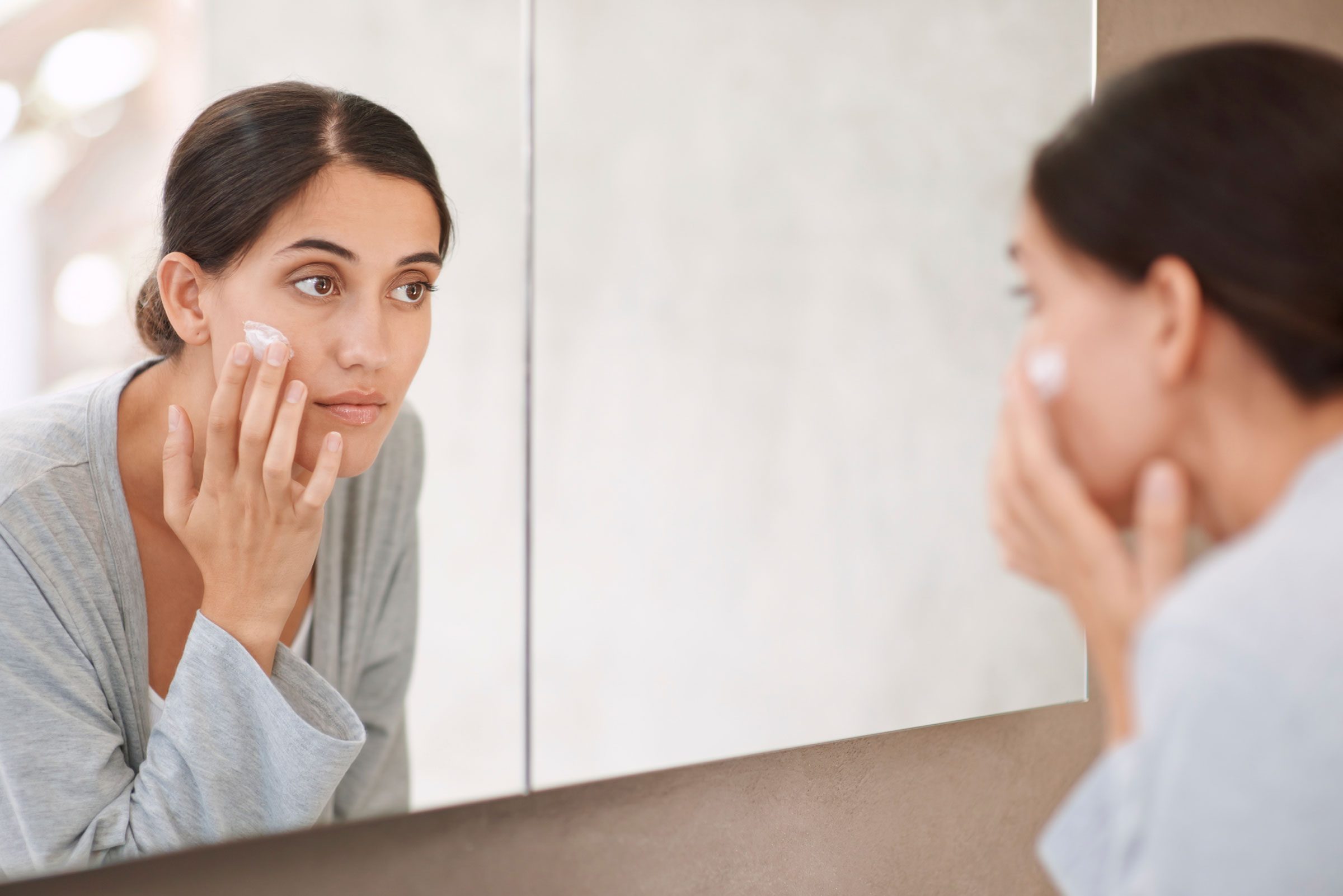
Always use an eye cream
“The eyelid skin is the thinnest and most delicate skin and shows age the fastest,” says Debra Jaliman, MD, author of Skin Rules and an assistant professor of dermatology at Icahn School of Medicine at Mount Sinai. So even though the skin care aisle can be incredibly overwhelming, it’s worth spending some time there. To ensure effectiveness, look for peptides and antioxidants on an eye cream’s ingredient list, suggests Dr. Jaliman. (What are peptides? Here’s what you should know.)
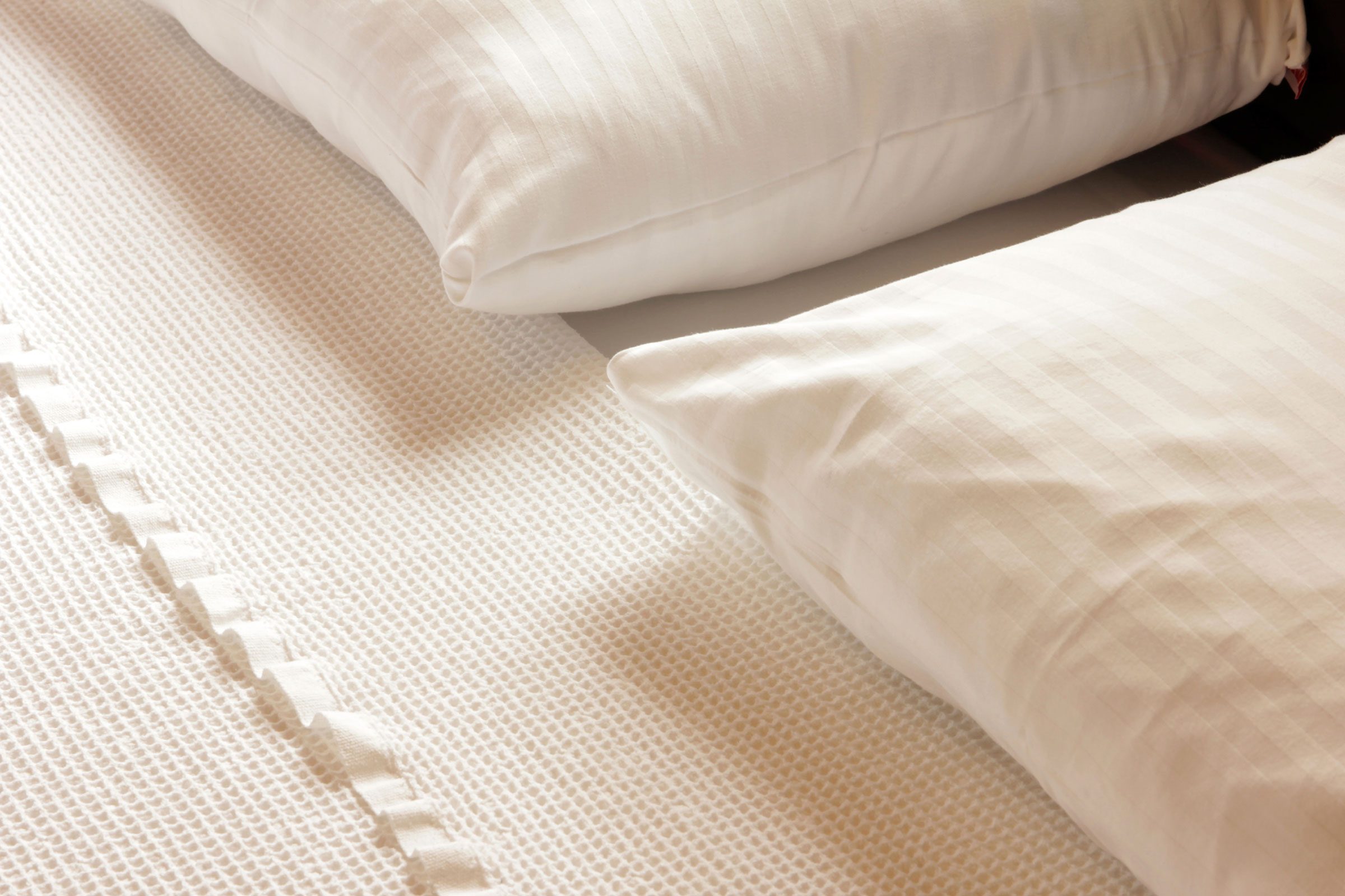
Sleep on a silk pillowcase
You’ve probably heard rumors about sleep lines: The way you snooze could leave unsightly lines on your face. But what could really impact the pesky lines? The material on which you snooze. With silk, your face will slide—not crunch—against the pillow, says Dr. Jaliman. This means you’ll avoid even the possibility of the marks (and you’ll be more comfortable!). If you’re super skin-conscious, switch to silk—and find out what foods are tied to younger-looking skin.
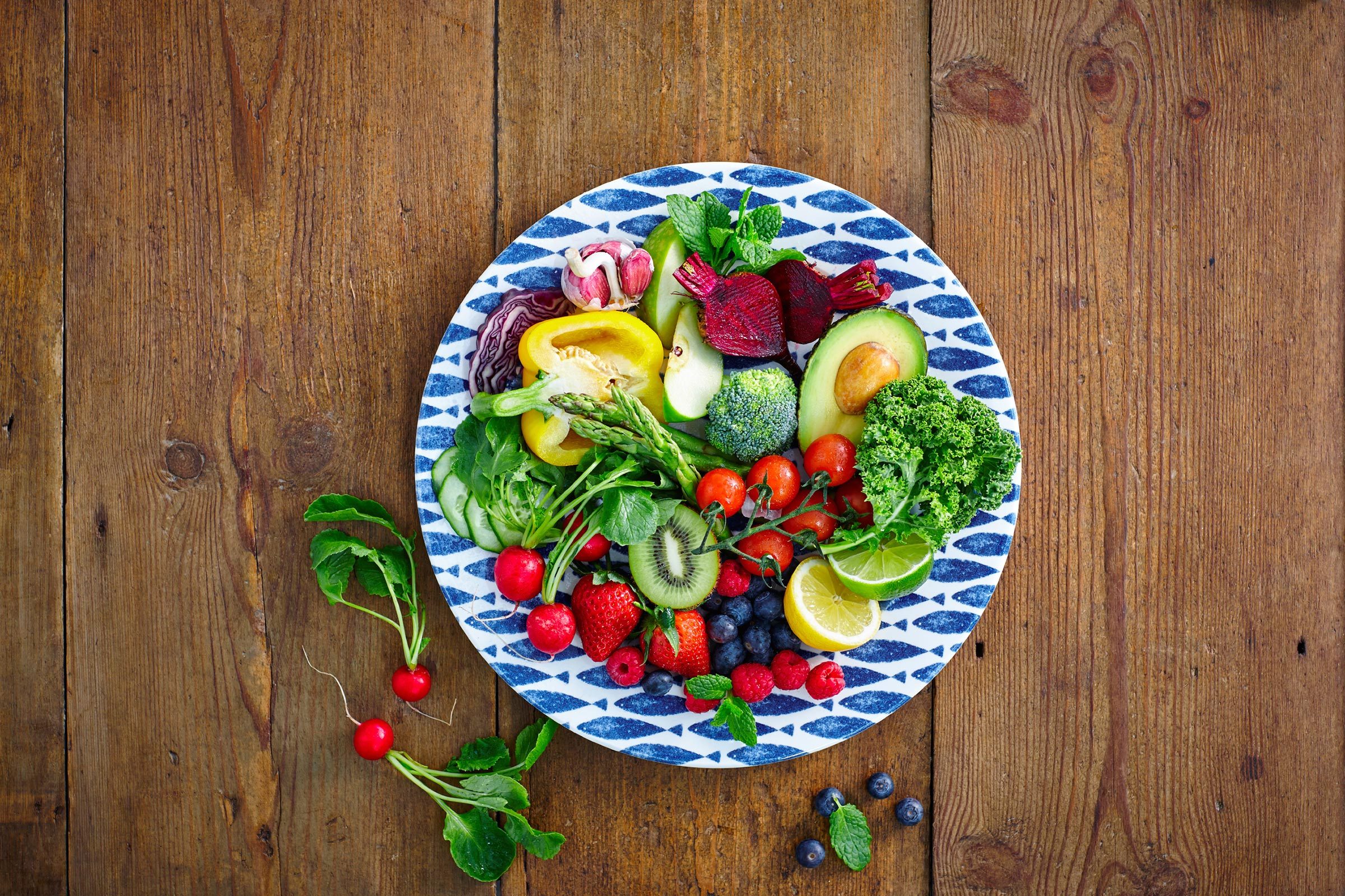
Eat the rainbow
A white bread-based diet does not for clear skin make. That’s why Dr. Jaliman makes sure her diet is packed with brightly-colored fruits and vegetables, especially these. “Fruits and vegetables are high in antioxidants, which gives a glow to the skin,” she says. Here are the antioxidant-rich fruits and vegetables you should be eating.

Use headphones when you chat
Your cell phone has more germs than a toilet seat. Cue the ick factor: In a 2014 study published in the journal PeerJ, researchers tested a small sample of 51 phones and found 7,000 different kinds of bacteria. So do as skin doctors do and keep your mobile device away from your face. Some of the bacteria on the surface of your device can cause breakouts, says Dr. Jaliman. (Don’t miss these surprising home remedies for acne.)

Cut your sugar intake
In 2018 the U.S. Food and Drug Administration (FDA) proposed that added sugars—the kinds added to processed foods—not exceed 10 percent of your total calories for the day. And nutritionists aren’t the only ones cutting back on the sweet stuff—dermatologists have long known about sugar’s negative side effects for your skin. Sugar molecules can stiffen collagen—the protein that helps keep your skin healthy—and cause wrinkles, Dr. Jaliman says. (Be sure to avoid these worst foods for your skin. )
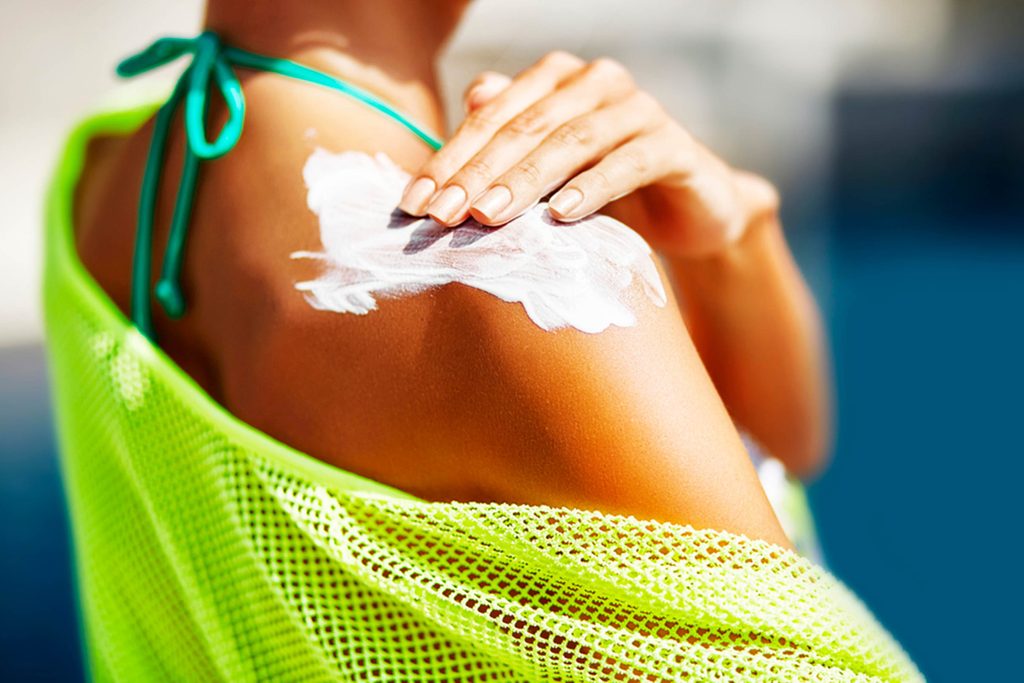
Sunscreen is imperative
Everyone has heard time and time again that sunscreen is essential for anti-aging skin care. What many people don’t know is that sunscreen should always be the first thing you apply to your face, not the last. According to board-certified Neal Schultz, MD, host of DermTV.com and creator of BeautyRx by Dr. Schultz, “The reason being that when the sunscreen was tested by the FDA it was applied to absolutely bare skin—so if you want the rated sunscreen protection, it needs to be applied first. When I’m spending time outside, I abide by the shadow rule. When my shadow is shorter than I am, then I know the sun is at it’s strongest, and even with sunscreen—which I apply daily—it’s important to limit sun exposure.”
Victoria A. Cirillo, MD, a dermatologist in Philadelphia agrees, “The way I remember to apply sunscreen throughout the day is tied to an Australian saying Slip, Slop, Slap, Seek, Slide. I’ve told it so many times to my own family when on trips. It means: Slip on a shirt, Slop on SPF 30+ sunscreen, Slap on a hat, Seek shade or shelter, and Slide on some sunglasses.”

Utilize tomatoes
Telling someone “your cheeks are as red as a tomato” has long remained a reference to their vigorous, thriving health. Well, there’s a good reason behind that: Health and tomatoes have always been interlinked due to the fact that the red fruit holds a plethora of nutritional benefits. John Layke, DO, Beverly Hills cosmetic and plastic surgeon, swears by using tomatoes to brighten skin, reduce age spots, and reduce discoloration due to high levels of lycopene, a potent antioxidant. (Check out these tricks to get naturally glowing skin.)
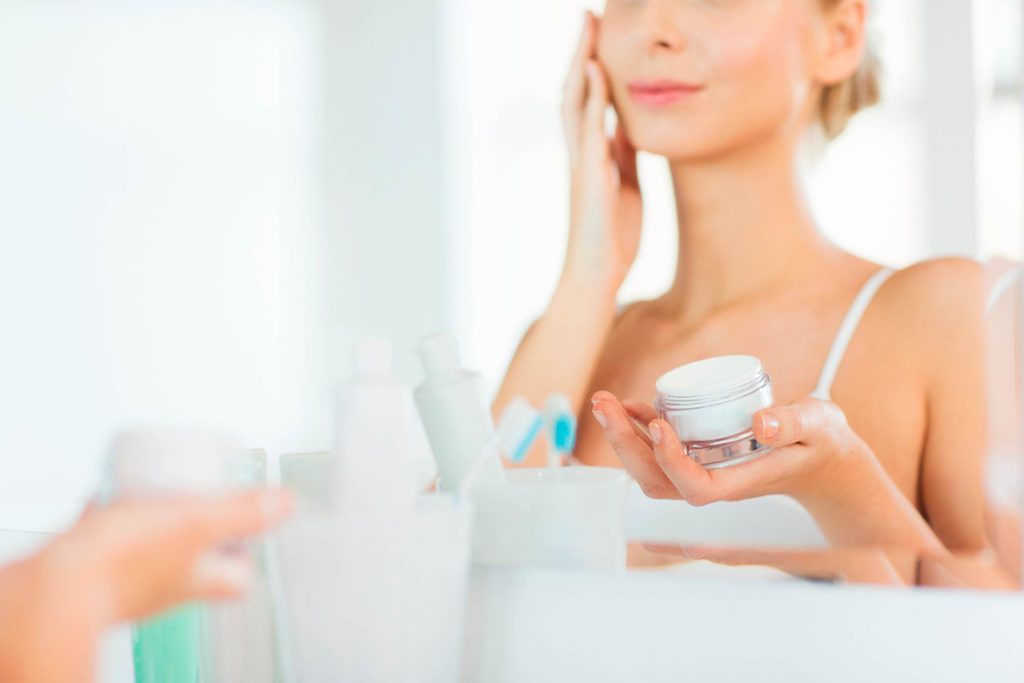
Maintain a consistent morning and nighttime routine
Oversleeping in the morning or getting back late at night might discourage you from fulfilling your skin routine. However, Loretta Ciraldo, MD, FAAD, a dermatologist in Aventura, Florida, stresses the need to maintain morning and evening routines. “I often compare a once-daily use of a product that’s recommended for a twice a day as only getting “half the dose” of what you need for desired results. If I need to give someone an antibiotic shot and I dump out half the amount of medicine before I give the shot, they’d know I am wasting their time and lowering efficacy. It’s really very similar to using skincare just as recommended.” (Find out more tips for amazing skin from a plastic surgeon.)
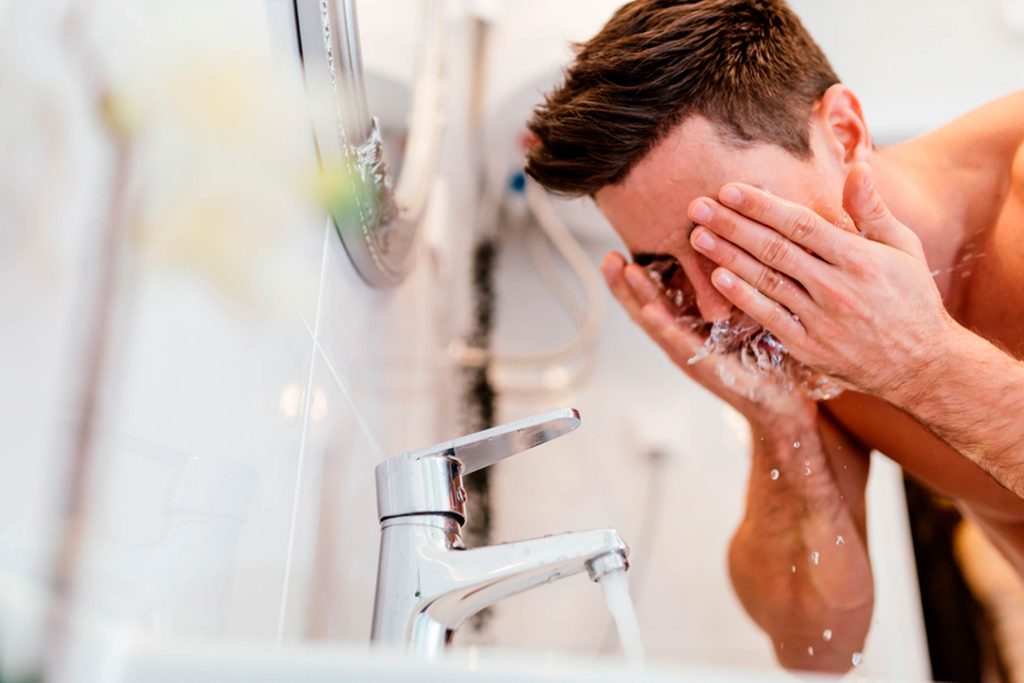
Be a minimalist
People try unusual approaches to skin care in their quest for perfect, glowy skin, but the standard cliche really does ring true in the case of skin care: Less is more. “As a rough rule with cosmetic products, fewer ingredients is better, so I like products without lots of additives such as fragrances. In the evening, I cleanse my skin to remove grime/pollution with water and a gentle exfoliant, then moisturize with a cream (something that comes in a tub rather than a pump-bottle is generally best) and head to bed.” says Tyler Hollmig, MD, associate professor in the department of internal medicine’s division of dermatology, director of dermatologic surgery, and director of laser and cosmetic dermatology for the department in the University of Texas at Austin Dell Medical School.
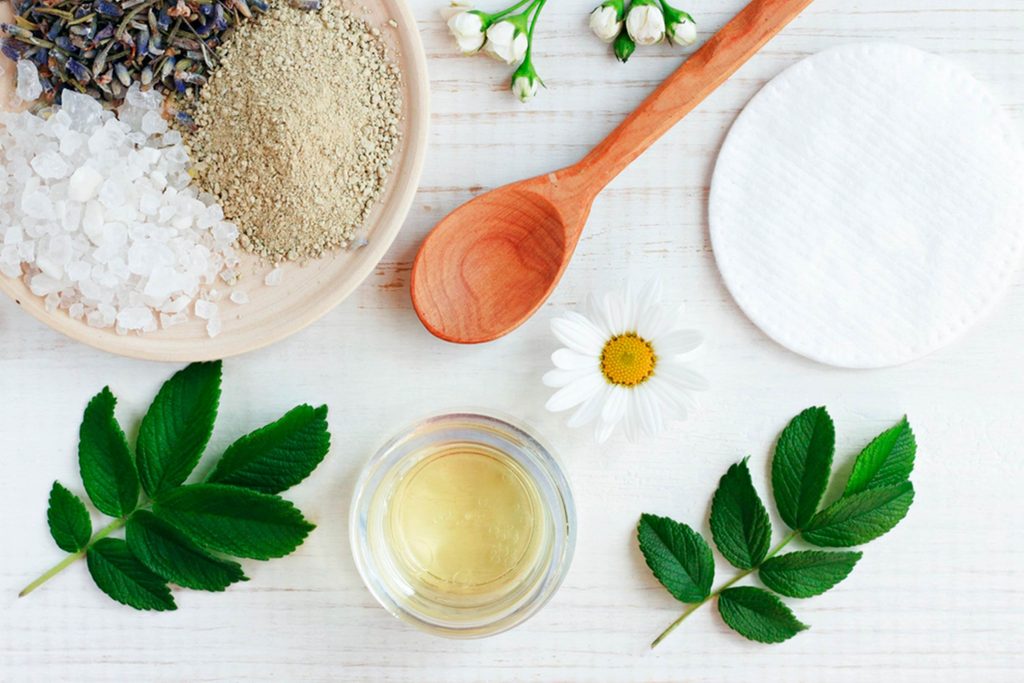
Use mineral-based products
Unlike traditional globs of thick foundation, mineral makeup lines tend to be free of preservatives and chemicals. Since these steer away from products with parabens, dyes, and fragrances, women with skin conditions like eczema or rosacea who don’t want to forgo makeup will find themselves in their wheelhouse here. Janet Prystowsky, board-certified dermatologist in New York City, says, “I use a liquid tinted mineral-based sunscreen on my face as a foundation. Look for zinc oxide and titanium dioxide in the active ingredients. Elsewhere, I’ll use clear mineral and chemical-based sunscreens because they absorb well and don’t stain my clothing.”

Consider diet supplements
You may also want to consider the vitamins, minerals, herbals, and enzymes found in the drugstore aisle; these pills contain nutrients that may help revitalize your skin from the inside. Robin Evans, board-certified dermatologist and a clinical instructor at the Albert Einstein College of Medicine in Bronx, New York says, “I take fish oil every morning—1500 mg EPA and DHA; flax oil which helps hydrate dry skin and flax seed for its anti-inflammatory benefits. All help for anti-aging, moisturizing, and overall skin health.”

Avoid hot showers
This one may come as a disappointment to those who thrive in hot showers, but dousing yourself in blazing water may be doing your skin a serious disservice. It removes too much of your natural oils and brings blood circulation to your skin, creating inflammatory reactions that result in rashes and aggravate those with eczema or dry patches. According to celebrity dermatologist and head of Skinfluence, Marina Peredo, MD, “During the summers, I regularly take cold showers. After prolonged sun exposure, a hot shower can further dry out skin, causing more damage. Also, excessive sweating leaves you more susceptible to acne breakouts. Cool off by turning down the heat and help keep your skin healthy in the summer months.”
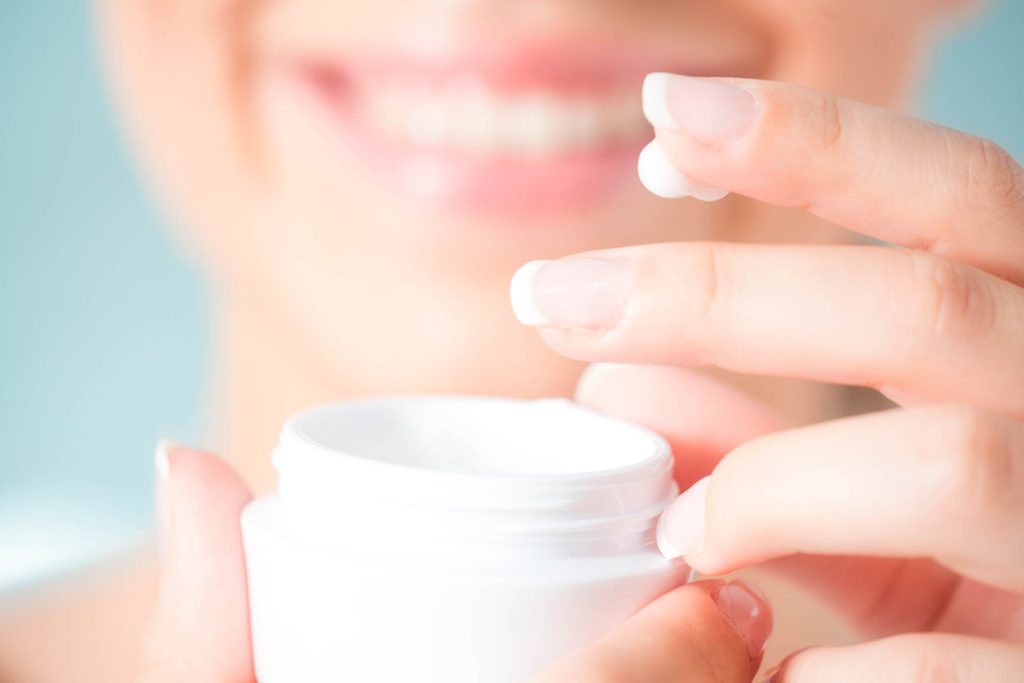
Try retinoids
Retinoids are an unfortunately underrated element in the standard skin care routine, but most dermatologists are nearly unanimous in proclaiming their unwavering devotion to retinoids. Joyce Park, a New York City-based dermatologist and health and beauty blogger, says, “I recommend a topical retinoid like tretinoin or its over the counter counterpart Differin, which is a vitamin A derivative that treats acne, lightens dark spots, and helps build more collagen and prevent skin aging. After washing my face and patting dry, I apply a pea-sized amount to my entire face. I have very sensitive skin and some of the side effects include irritation, redness, and mild skin peeling, so I try to use my retinoid every 2-3 nights.” Find out some potential reasons for your skin peeling.
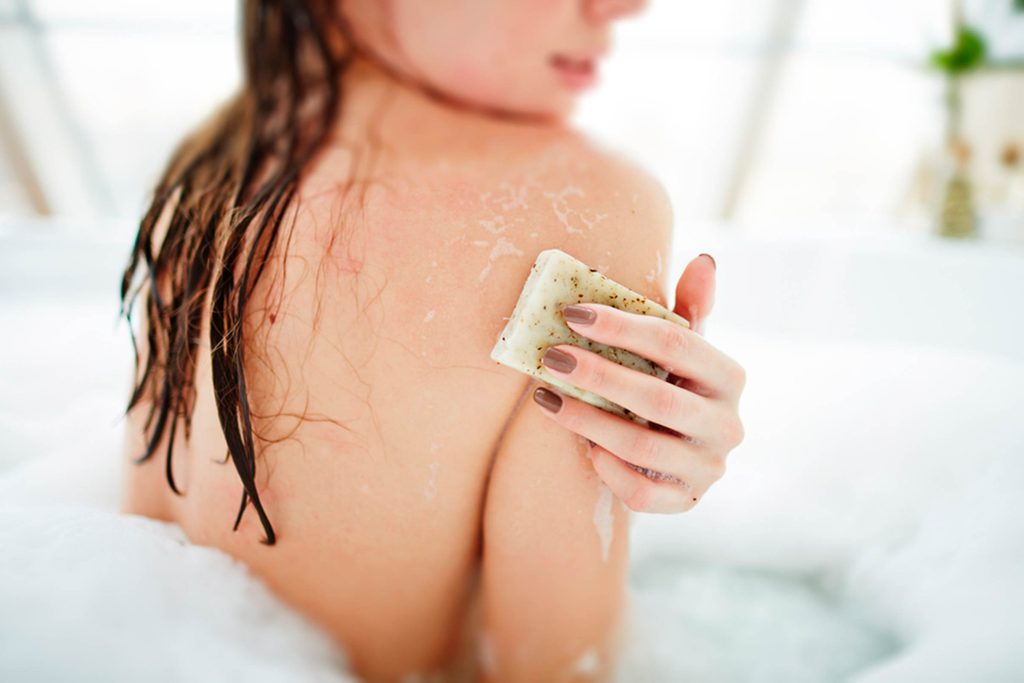
Exfoliate, exfoliate, exfoliate
Exfoliating will not only slough up dead skin cells for a more radiant complexion, it will also scrub away excess oil and clogged pores that lead to blemishes and acne down the road. According to cosmetic dermatologist Shereene Idriss, MD, of Union Square Laser Dermatology in New York City, “Exfoliation is essential. Twice to maximum three times a week is the sweet spot. Avoid the exfoliating mistake of using harsh beady scrubs as they may further irritate you or even lead to scarring. Try sticking to gentle chemical exfoliants such as a cleanser with lactic acid or, my personal favorite, glycolic acid peels. This renews your skin on a regular basis, keeping fine lines at bay and minimizing pores overall.”

Antioxidants are vital
Just like your internal body requires a balanced medley of beneficial nutrients, so does your skin. Think of antioxidants as food for the skin; not only do they help combat aging, but they also limit the production of free radicals. Melissa Kanchanapoomi Levin, dermatologist and clinical instructor at the Mount Sinai Icahn School of Medicine, says, “Free radicals are created when skin is exposed to ultraviolet radiation, infrared radiation, pollution, and environmental stressors. Antioxidants reduce this oxidative stress by neutralizing free radicals. By adding an antioxidant, you are adding boosting your sun protection with your sunscreen as well as protection to other stressors.” Don’t miss the things your dermatologist won’t tell you.

Bar soaps are a great way to get clean, and no, it’s not bad for skin
One of the biggest shower dilemma debates is the one between bar soap and body wash. While many tend to run away from bar soap due to its bad stigma, any product that includes water (like liquid soap) among its ingredients mandates a preservative, which is packed with drying chemicals and surfactants. Bar soap is made with sodium hydroxide, so the formula consists of only soap molecules and moisturizing glycerin. Terrence Keaney, MD, FAAD, a dermatologist in Arlington, Virginia, says, “Bar soaps get a bad rap—and there is a big misconception about them. People think they’re dirty and foster germs, but there are no reputable studies that say there’s more bacteria growing on bars. I recommend a bar with moisture built-in… it takes the hassle out of the process.”
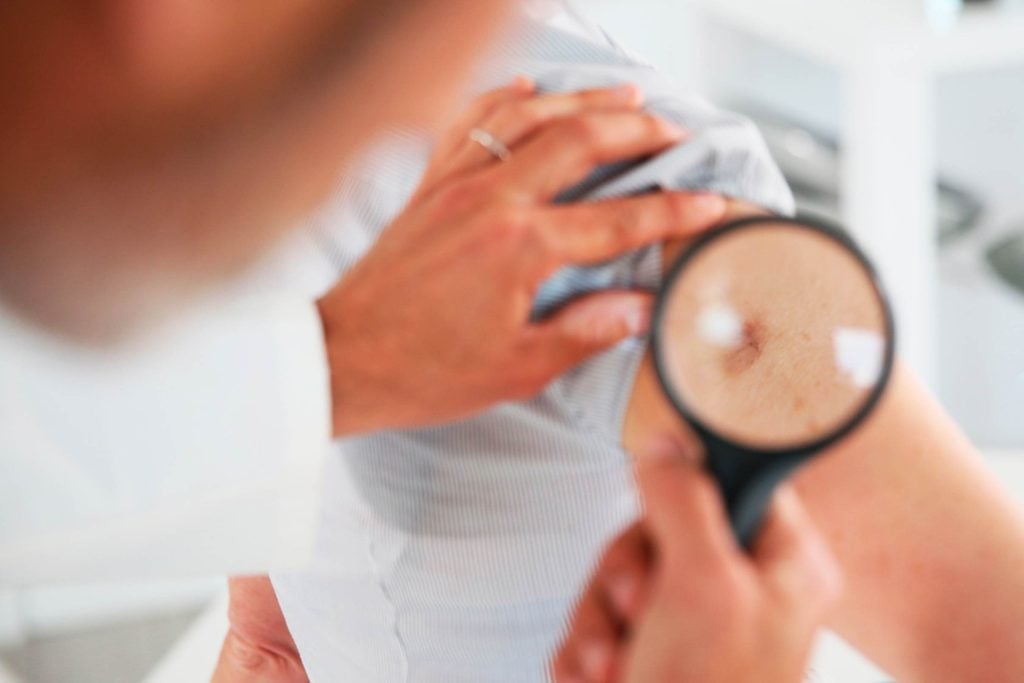
Don’t neglect your dermatologist appointments
A generally accepted rule of thumb is to schedule a checkup with your primary doctor at least once a year. However, the equally important dermatologist appointment often gets overlooked. According to Brooke Bair, DO, licensed dermatologist in New York City, “Most importantly, I see my dermatologist yearly for a skin exam. I have a family history of melanoma and I grew up in Florida in a small beach town. When I was in high school, the more tan you were the better. Now we know more about the dangers of UV radiation and what we can do to protect from the risk of skin cancer, including deadly melanoma.” Next, find out the 37 worst pieces of advice dermatologists have ever heard.